
Alexandra Alegre is an assistant professor of architecture at Instituto Superior Técnico, University of Lisbon. Her research interest is in the field of Portuguese architecture, focused on the history of architecture, construction and urban history, planning and design project process, and issues related to educational and recreational architecture and childhood studies.
Between 2010 and 2013 she participated in the research project IN_Learning and since 2016 she is a researcher of the international project Re-Use of Modernist Buildings - Design Tools for Sustainable Transformations, Programme Erasmus+ Keyaction: Cooperation for innovation and the exchange of good practices. She is the principal researcher of the project Atlas of School Architecture in Portugal _ Education, Heritage and Challenges (PTDC/ATP-AQI/3273/2014), funded by Fundação para a Ciência e Tecnologia.
Author of several national and international papers published in journals such as Construction History Journal and Planning Perspectives, and session chair in international conferences (Docomomo 2016, EAHN 2018). Author of the book Arquitectura Escolar. O Edifício Liceu em Portugal (1882-1978), published by Fundação Calouste Gulbenkian in 2012.



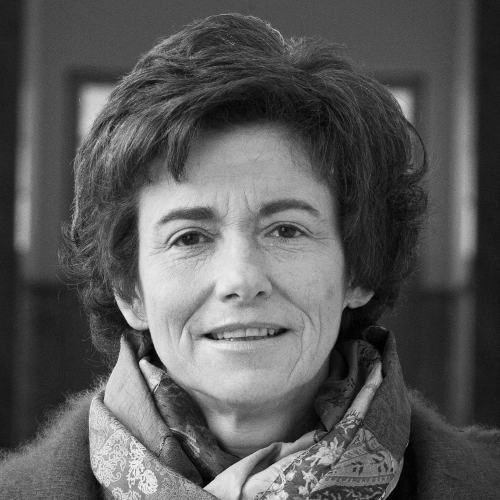
Teresa Heitor
Teresa Heitor was born in Lisbon, Portugal in 1959.
She is Full Professor of Architecture at University of Lisbon, Instituto Superior Técnico (IST).
She obtained a first degree in Architecture (1982, Escola Superior de Belas Artes de Lisboa, PT), a Master degree in Urban Design (1984, Joint Centre for Urban Design, Oxford Brooks University, UK); a PhD in Territorial Engineering (1997, Technical University of Lisbon, Instituto Superior Tecnico, Lisbon, PT) and habilitation in Architecture (2007, University of Lisbon, Instituto Superior Tecnico, Lisbon, PT).
Currently she is the chair of Architecture at IST. She has been teaching post- and undergraduate students in Architecture at IST for the past 20 years. In that time, she has been responsible for both the IST 5-year Master Program in Architecture (1999-2003; 2005-08; 2010-16) and the Doctoral Program in Architecture (2008-13) and has also supervised a large number of PhD students as well as dissertation projects from Master programs. She has been appointed to examine a large number of PhD thesis and to take part in Habilitation Committees both internally and externally.
She has research expertise in the area of spatial analysis within the theoretical and analytical framework known as ‘space syntax’ for studying the relationship between people and their built environments. Her research interests are focused on the relationship between space, form and function and the development of models capable to simulate the implications of new social demands as well as on self-assessment tools to be applied along the occupancy stage. Her current research activity aims at the understanding of contemporary socio-spatial aspects of learning in urban settings, i.e., the places where structured and unstructured modes of learning, social interactions and re-presentation of knowledge can take place. Particular attention is given to technology-enabled active learning and research environments.
She has also an interest on innovative learning practices applied to real-world design problems for which she has published a range of articles.
At the IST Doctoral Program in Architecture she runs the Space-use Analysis module, which examines the interface between built form and social outcomes and the impact of spatial design on people and social behaviors inside a range of complex buildings such as schools, universities and workplaces.
She has been involved with the OECD Directory of Education through the Centre for Effective Learning Environments (CELE) in different research and consultancy activities in the field of educational buildings performance and quality. Since 2005 she integrates the Group of National Experts on Evaluation of Education Facilities (GNEEEF) and coordinated the International Pilot Study on the Evaluation of Quality in Educational Spaces (EQES) (2007-2010). Between 2010 and 2012 she served as the Portuguese Delegate to OECD-CELE.
She integrates the steering committee of the International Space Syntax Symposia network and chaired the organizing committee of the 11th International Space Syntax Symposium held in Lisbon, 3rd to 7th july, 2017 (www.11ssslisbon.pt).
In addition to her teaching and research activity she is regularly invited to disseminate knowledge to policy-makers and the general public.
She regularly undertakes higher education strategic evaluations and peer review assessments for European and national research/scientific councils.




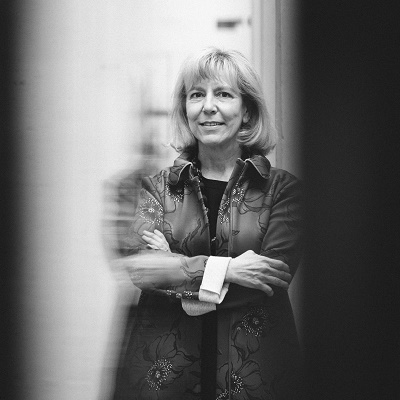
Ana Tostões
Ana Tostões, PhD is an architect, architecture critic and historian, and is president of Docomomo International and Editor of the Docomomo Journal. She is a Full Professor at Técnico, University of Lisbon, where she teaches Theory of Architecture and Critical History, and coordinates the Architectonic Culture research group. Since 2012, she has been in charge of the Architectural PhD programme. She has been invited professor at universities worldwide.
She has a degree in Architecture (ESBAL, 1982), a Master’s degree in History of Art (UNL, 1994) with a thesis entitled Os Verdes Anos na Arquitectura Portuguesa dos Anos 50 (FAUP Ed., 1997) and holds a PhD (IST-UL, 2003) on culture and technology in Modern Architecture (Idade Maior, FAUP Ed., 2015, awarded the BIAU Prize 2016).
Her research field is the Critical History and Theory of Contemporary Architecture, focusing on the relationship between European, Asian, African and American cultures. On this topic, she has published books and essays, curated exhibitions and organised scientific events. She has also coordinated research projects, supervised PhD and MSc theses, taken part in juries and committees, and given lectures worldwide.
She coordinated the research project Exchanging World Visions focused on Sub-Sahara African architecture during the Modern Movement period, which was published and awarded the APH Gulbenkian Prize 2014. She currently coordinates the research project “CuCa_RE: Cure and Care_the rehabilitation”.
Tostões has been vice-president of the Portuguese Chamber of Architects and the Portuguese section of the International Association of Art Critics.

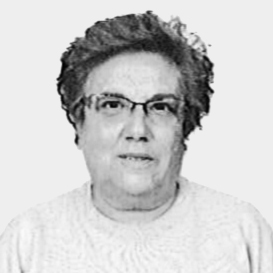
Áurea Adão
Áurea Adão holds a degree in History from University of Lisbon, the “Docteur du 3ème cycle en Sciences de l’Éducation” from the University of Bordeaux II (France) and a doctor degree in Education (History and Philosophy of Education) from the University of Lisbon.
She is a retired researcher from Calouste Gulbenkian Foundation and still works with UIDEF of Institute of Education from the University of Lisbon.
She was Professor at the Lusófona University oh humanities and Tecnologies (1997-2009) and deputy-dean for Research and Technology (2008-2009).
She was Dean of the Lusófona University Baltasar Lopes da Silva, em Cabo Verde (2006-2007).
She was awarded with the “Dr. Rui Grácio” Prize in 1997 by the Sociedade Portuguesa de Ciências da Educação.
From 1993 to 1995 she was a member of the Board of the International Standing Conference for the History of Education (ISCHE).
Member of the Associação de História da Educação de Portugal e da Sociedade Portuguesa de Ciências da Educação.
She Co-organizes national and international scientific events in the field of Educational Policies and History of Education.
She author, co-authors and is responsible for a diverse field of studies, focused on History of Education, published in several books and national and international journals.
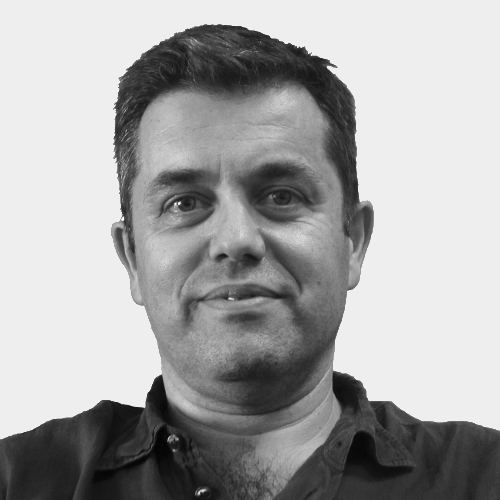
Francisco Teixeira Bastos
Francisco Teixeira Bastos is Assistant Professor of Architecture at Instituto Superior Técnico (IST), University of Lisbon. He his involved in teaching at both the undergraduate and graduate levels as well as in research and other outreach activities. As a CiTUA membe, his research activity is concentrated on Practice-based research, and involves a reflection upon the state of architectural and urban education and practice and outcome measures for the future; evaluation of design protocols, strategies and procedures; development of integrative design platforms and collaborative design tools.
Francisco is a registered Architect in Portugal with practice experience since 1986. After practicing with Manuel Vicente (1989-1994), he created the Atelier dos Remédios in 1997, together with Madalena Cardoso de Menezes. They are involved in private and public works such as housing and schools. Their work has been featured in several international magazines and has been presented in lectures in Europe, China, and Latin America. They won the Prémio Valmor 2011 prize (Lisbon City Council, Portugal). In 2012 integrated the OCDE SITE for Good Practices for Education with Dona Leonor High School Modernization, and was highly commended award 2013 (WAN prize) and 2015 (AR prize) for education with “Dona Leonor High School Modernization”.
Francisco is a member of the Portuguese comity for BIM normalization, since 2015.


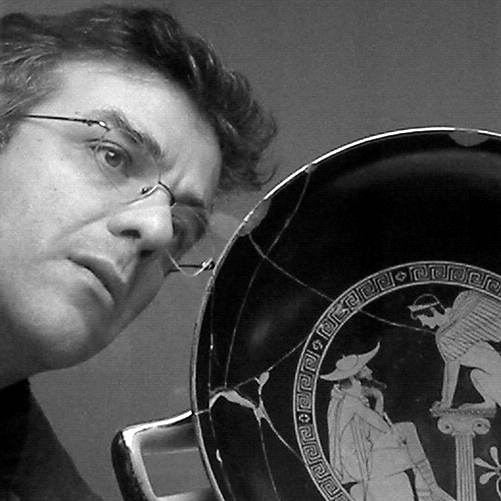
João Paulo Martins
João Paulo Martins (Lisbon, 1965)
University of Lisbon, Faculty of Architecture
Research Centre for Architecture, Urbanism and Design (CIAUD)
Degree in Architecture (FA, UTL, 1988); Master in the History of the Arts (FCSH, UNL, 1995); Research Sufficiency Diploma (ETSAM, UPM, 2002); PhD in Architecture (UTL, 2006).
He was principal investigator of the project "Modern Furniture. The activity of the Committee for the Purchase of Furniture under the Directorate General of National Buildings and Monuments. 1940-1980" funded by the Portuguese Foundation for Science and Technology (PTDC/AUR-AQI/115660/2009). He curated the exhibitions “Daciano da Costa, Designer” (Calouste Gulbenkian Foundation, 2001) and “The respect and discipline imposed upon all. Furniture for public buildings in Portugal. 1934-1974” (MUDE Museum of Design and Fashion, Colection Francisco Capelo, 2014).
He researches and has published on History of Contemporary Architecture and Design in Portugal.


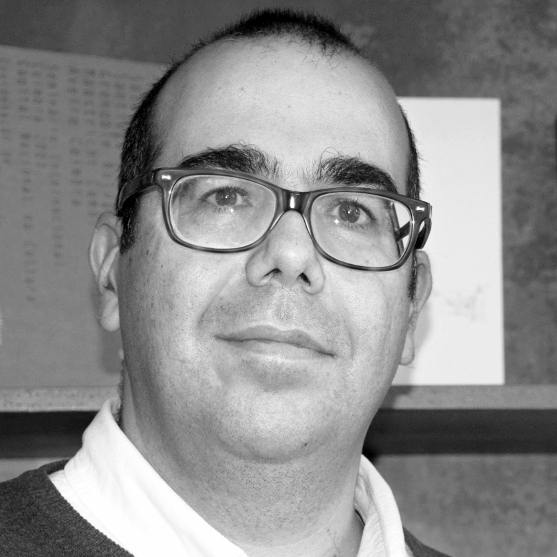
Gonçalo Canto Moniz
Gonçalo Canto Moniz (Porto, 1971) is a researcher of the Cities, Cultures, and Architecture (CCArq) Research Group and was member of the Executive Board of the Centre for Social Studies of the University of Coimbra (2014-2017). Graduated on Architecture at the Department of Architecture of Faculty of Sciences and Technology of the University of Coimbra in 1995, where he is Assistant Professor and editor of e|d|arq editions and JOELHO, Journal of Architectural Culture. Obtained his PhD degree in Architecture at the University of Coimbra in 2011, based on his academic thesis: "Modern Architectural Education.
He coordinates the european project URBiNAT "Healthy corridor as drivers of social housing neighbourhoods for the co-creation of social, environmental and marketable NBS", with 28 international partners, supported by H2020. He is researching and teaching about the reuse of modern buildings and its impact on the urban context, in the frame of the european project Reuse of Modernist Buildings, supported by Erasmus Plus. He participates in the national project "Atlas of school buildings in Portugal, supported by FCT. He has been publishing about modern architecture in Portugal, namely about school buildings and architectural education. He is author of the book "Arquitectura e Instrução: o projecto moderno do liceu, 1836-1936" (e|d|arq, 2007).


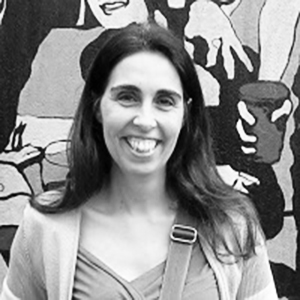
Patrícia Lourenço
Patricia Lourenço is an architect and invited assistant professor at IST, lecturing Architecture Project in the second year of the integrated master in Architecture. She obtained her degree in architecture in 1996 from Faculdade de Arquitectura da Universidade Técnica de Lisboa. In 2002 she obtained her master degree in Architecture at IST, Universidade de Lisboa, researching on sustainable construction materials, with a thesis on the economic and technical viability of re-using raw earth construction in Portugal. Since then she has been involved in the research and dissemination of practices to promote raw earth heritage conservation as well as its construction techniques mapping and updating, by participating in research groups, books and articles writing and revision, conferences and workshops.
In 2015 she concluded a PhD in Architecture, at IST, researching on enhancing buildings’ sustainability through user oriented strategies and use data monitoring. Case study: School buildings.
The current primary areas of research include 1) Evidence Based Sustainable Architecture, 2) Post occupancy evaluation & buildings in use monitoring 3) Users behaviour data for modeling and simulating buildings’ energy performance.
Dissemination of results include journal and conference articles, participating as guest consultant for the European Council of Architects regarding the theme “Responsible Architecture”.
She is currently participating on the following research projects at IST: 1) RMB – re-use of modernist buildings (www.rmb-eu.com); 2) ATLAS of School Architecture in Portugal – Education, Heritage and Challenges (PTDC/ATP-AQI/3273/2014).
She is a licenced professional architect since 1999, maintaining a professional practice since then.
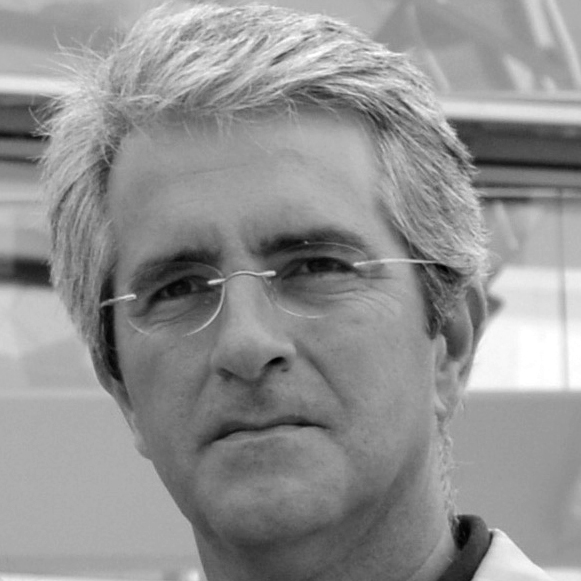
António Gago
Assistant Professor at Instituto Superior Técnico (IST), Department of Civil Engineering, Architecture and Geo-recursos (DECivil).
He is, currently, Executive Director of DECivil and Director of DECivil Laboratories and a Senior Fellow with the Specialist Degree in Structures of the Portuguese Engineers Society.
He was the founder and is currently the Vice-President of the Portuguese Society for Construction History Studies (SPEHC).
He develops research activity at IST, as a member of the CERIS research center, with work in the scientific areas of Structural Analysis, Seismic Assessment of Construction and Construction History.
He teaches at IST the structural courses of the master courses in Civil Engineering and Architecture and supervised several master's and doctoral studies in Civil Engineering and Architecture.
In the scope of his activity in analysis and design of structures (design of new constructions and strengthening of old constructions) has worked with special emphasis on masonry structures. Nevertheless, is author of several design projects of reinforced concrete structures, structural steel and timber structures. He was consultant for Seismic Assessment of Masonry Buildings in the recently “Parque Escolar” rehabilitation program of the secondary schools. He is author of several publications in National and International Scientific Journals, as well as, in National and International Scientific Conferences.
He organized, and taught, several courses on rehabilitation and structural reinforcement of old buildings and was lecturer in scientific and technical events.

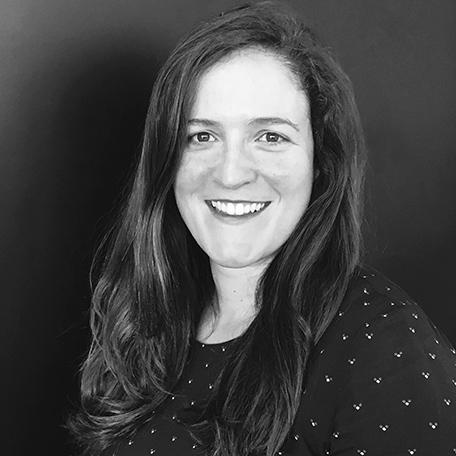
Maria Bacharel
Maria Bacharel is a post-doc researcher in Architecture at Instituto Superior Técnico. She holds a Master Degree in Architecture from IST (2007), after which she practiced as an architect for several years, focusing mainly on the rehabilitation or refurbishment of public buildings.
She was awarded an individual doctoral FCT grant for the pursue of her PhD in Architecture, which was completed in 2015 at IST under the title “In-between Formality and Informality. Learning Spaces in University Context”. It was awarded the “Glenn Earthman Outstanding Dissertation Award” by the International Society of Educational Planning in 2016.
Her research interests are focused on the morphology and characteristics of knowledge transmission scenarios, as well as their practiced pedagogies, social and cultural behaviours.
She has worked in the IN_LEARNING research project, which focused on the space-use analysis applied to university learning spaces. Since 2016 she is part of the ASAP-EHC – Atlas of School Architecture in Portugal – Education, Heritage and Challenges research team.
She was a member of the organizing committee of the 11th International Space Syntax Symposium held in Lisbon, 3rd to 7th July 2017 (www.11ssslisbon.pt).




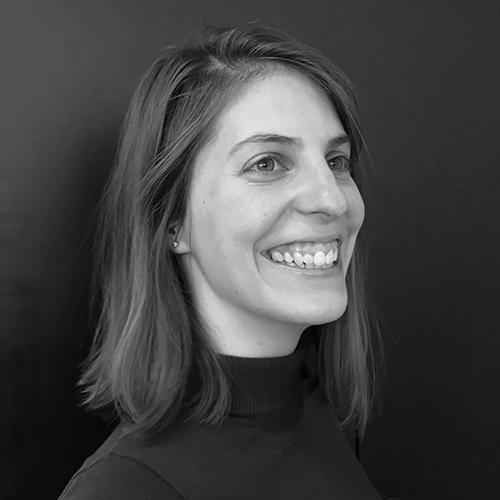
Ana Fernandes
Ana Fernandes is an architect and researcher at Instituto Superior Técnico.
Graduated with a Master degree in Architecture in 2013, with the thesis entitled “BNU Headquarters Building. Adaptive reuse in the context of Baixa Pombalina: from Bank to Museum” aiming at contribute to the preservation of the memory and integrity of the building and to inform architectural projects of renovation and refurbishment that were being planned.
Ana started working as an architect in the Atelier Teresa Nunes da Ponte, from 2013 to 2016 collaborating in architectural competitions, editorial projects and other works.
In 2016, Ana initiated her research activity, in the multidisciplinary team of the Atlas of School Architecture in Portugal - Education, Heritage and Challenges, which aims to provide a deeper understanding of school architecture in Portugal.
This project is funded by the Portuguese Foundation for Science and Technology – FCT and is developed in Instituto Superior Técnico with the collaboration of the General Secretary of the Ministry of Education and Science.


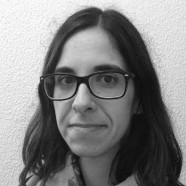
Susana Marcos
Susana Marcos holds a degree in History, and is specialized in Documentary Sciences (Archive), from Autónoma University of Lisbon. Since 2005, Susana works in the field of documentary sciences and has experience with Current, Intermediate and Final archives (or historical), in public and private aim.
From 2005 to 2009 Susana was involved in numerous of State projects, in the local and central administration and has worked in several positions: analyses of documentation, organization, evaluation, description, providing information to the users, curatorship, training…
From 2009 to 2011 Susana took part in the BAME project (Libraries, Archives e Museums da Education), a partnership between the General Secretary of the Ministry of Education and Science and Parque Escolar, E.P.E. From 2012 to 2015 Susana worked in the scope of the refurbishment process of several schools, before and after its rehabilitation in Parque Escolar, E.P.E.
In 2016 Susana worked in the Olympic Committee of Portugal in the Photographic Archive, handling and organising the exhibition for the commemoration of the “Olympic Day”.
In the 4th trimmest of 2016 and during 2017 Susana worked in the ASAP_EHC project – Atlas of School Architecture in Portugal_Education, Heritage and Challeges, handling, organizing, classifying and describing the documentation of the archive.
She is currently working at the Olympic Committee of Portugal handling its archive.
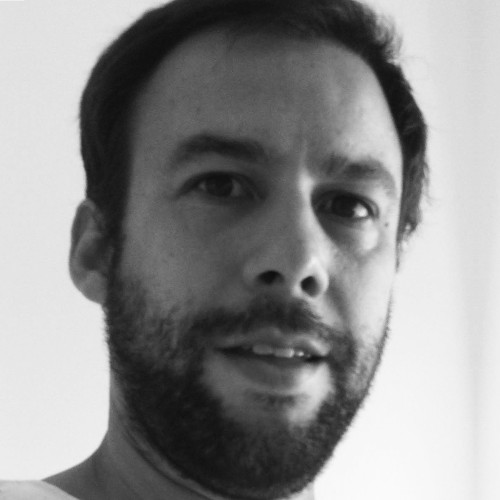
Pedro Namorado
Pedro Namorado Borges (Lisbon, 1983) is an architect (FAUTL, 2007) and researcher.
As an architect, his projects were developed in Portugal in the areas of housing, hotels and public school education buildings. He trained as a researcher at the University of Tokyo (2007), participated in several workshops and theoretical-practical courses, obtained a postgraduate in Architecture of Contemplative Metropolitan Territories at ISCTE (2013).
In ICS-Ulisboa (2017-2018) he collaborated in the projects, 'The Life of the Marechal Carmona Neighborhood in Cascais: Demographic and Social Portrait, 2018' and 'Housing. One Hundred Years of Public Policy in Portugal. 1918-2018 '.
He is preparing a PhD on the impacts of public housing policies in rural areas.
He coordinated, with Vanda Maldonado, the book "Vítor Figueiredo: Projects and Works of Social Housing 1960-1979" (Ed. Circo de Ideias: 2015).
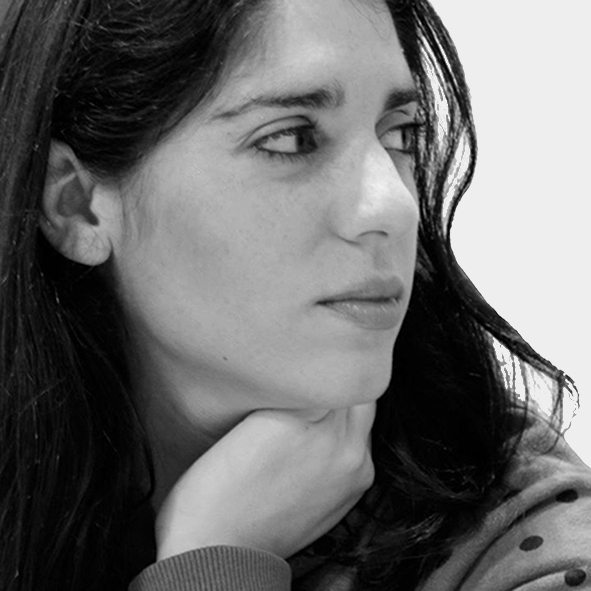
Carolina Ferreira
Carolina Ferreira is an architect and a PhD Student at the Faculty of Sciences and Technology, University of Coimbra, in Portugal, where she attends the PhD program Architectural Urban Culture, with the support of FCT. She also collaborates with the project “ATLAS of School Architecture in Portugal – Education Heritage and Challenges” and with the multidisciplinary research group “DRAPES – Design, Research and Practice in Educational Spaces European Network”.
As a researcher she is working together with Gonçalo Canto Moniz on educational spatialities by analysing school and urban design from the students’ perspective, in central region of Portugal, from a cross-disciplinary approach. In this sense, she is developing cartographic analysis and participatory methods so as to build a new tool for future school and urban design towards an alternative concept of school. She is mainly interested in the way architecture research can improve educational spatialities, as well as improve the public system bases on a complex network where schools, urban space, educational policies and people take place.
She has presented her research findings in international conferences namely in Santiago do Chile (AIHU, 2016), Copenhagen (NERA, 2017), Coimbra (RMB, 2108) and New York (AERA, 2018).
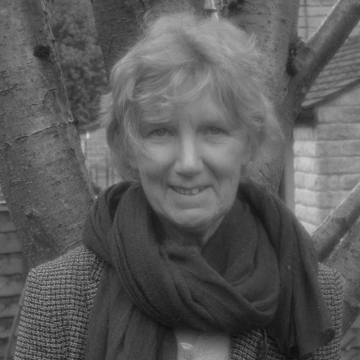
Catherine Burke
Catherine Burke is an historian of education. Her research focuses on 20th and 21st century progressive education with a particular interest in material contexts. She collaborates with architects designing schools today who are interested in drawing useful knowledge from past efforts to design schools to fit the child. She is currently working on transatlantic transferences of knowledge about the design of education during the ‘open learning’ era of the 1960s and 70s.

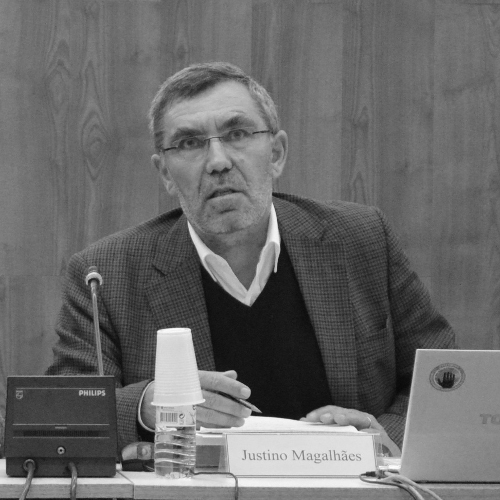
Justino Magalhães
Justino Magalhães is Historian of Education; Full Professor at the Institute of Education of the University of Lisbon Member of the Research and Development Unit in Education and Training (UIDEF); Contributor of the History Center of the University of Lisbon Main Areas of Research and Publication: History of Education; History of the School; History of Literacy; History of School Manuals; History of Educational Institutions; History of the Educational Site; History of the Pedagogical Municipality.



Mark Dudek
Mark Michael Dudek (born 4 May 1955) is a British architect, designer, writer and educator. Dudek is the founder and principal of Mark Dudek Associates, established in London in 1991 with considerable expertise in the design of schools, children’s centres and early-years facilities. His built projects include The Glasshouse Café for the Royal Horticultural Society in Surrey, UK, The Wyndham Nursery and School for Children with Learning Difficulties at Wyndham, Richmond upon Thames, UK and Thomas MacDonagh’s Heritage Centre in Cloughjordan, Irish Republic.
He has been key-note speaker at numerous conferences all-over the world on the subject of schools and children’s spaces, and was a Research Fellow at the School of Architecture, University of Sheffield between 2002 and 2014. He has written a number of influential books on school buildings and children’s urban culture, the most recent being How Children Learn from Architecture and the Environment, (to be published 2019 by Routledge). Dudek’s research is recognized as providing some of the strongest evidence of the links between architectural space, pedagogy and educational outcomes.
